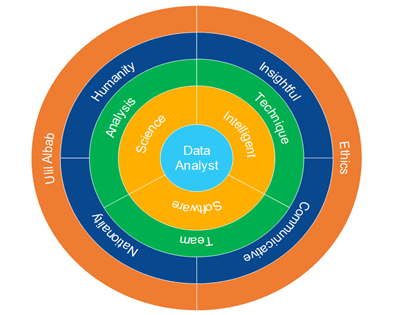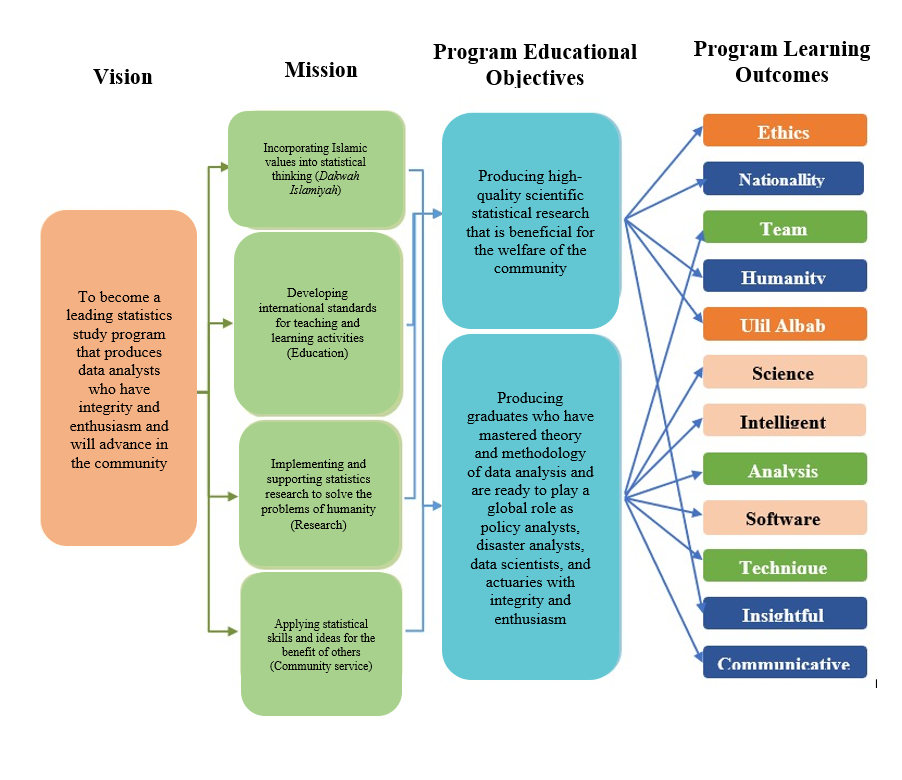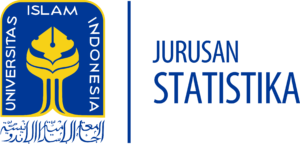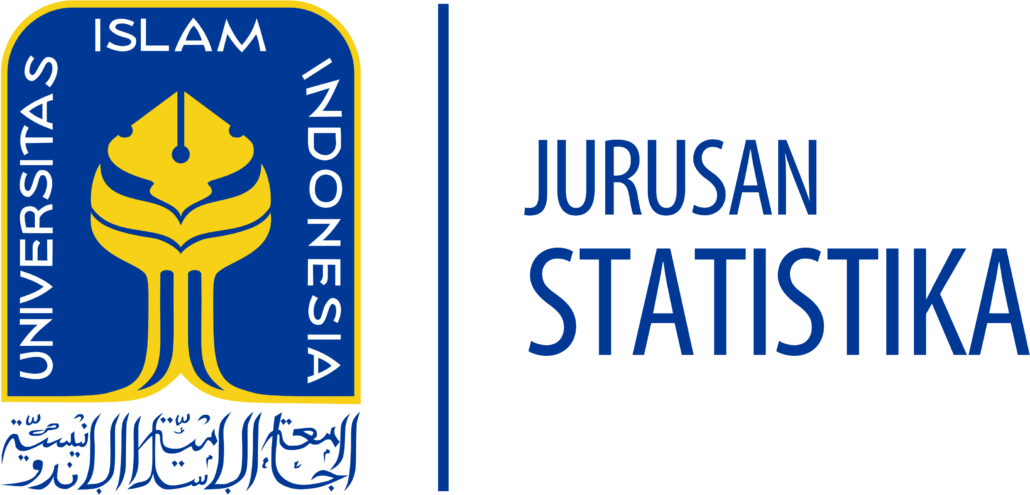PROGRAM LEARNING OUTCOMES (PLO)
Program Learning Outcomes (PLOs) are statements of what students are expected to know, understand, and be able to demonstrate after completing their studies. These PLOs are summarized in the form of the acronym “ENTHUSIASTIC”.
| ENTHUSIASTIC | Program Learning Outcomes |
| Ethics (E) | Obeying the law and maintaining discipline in social and state public and private life. |
| Internalizing academic values, norms, and ethics. | |
| Showing a responsible attitude on working in one’s field of expertise. | |
| Nationality (N) | Improving the quality of life in society and contributing to the state and the advancement of civilization based on the concept of Pancasila. |
| Taking a nationalistic pride as citizens and instilling a sense of responsibility towards nation and state. | |
| Team (T) | Working together with a social conscience and caring for the community and environment. |
| Developing and maintaining networks, working with mentors, colleagues, and peers both within and outside the institution. | |
| Taking responsibility for achieving results as part of a group and supervising and evaluating staff so that they complete work assigned to them. | |
| Evaluating groups under one’s responsibility. | |
| Humanity (H) | Upholding the high value of humanity while carrying out tasks based on religion, morals, and ethics. |
| Respecting the diversity of cultures, views, religions, and beliefs, as well as other people’s own opinions or findings | |
| Assessing the development and implementation of scientific knowledge in technologies. Applying values of humanity according to expertise, rules, procedures, and ethics to scientifically produce solutions, ideas, designs, or criticisms of art. | |
| Ulil Albab (U) | Showing piety to Allah (The Most Glorified, The Most High) and demonstrating an attitude of religiosity. |
| Internalizing the spirit of independence, struggle, and entrepreneurship. | |
| Science (S) | Mastering a range of statistical methods and models that can be used to solve problems across a number of disciplines. |
| Applying logical, critical, systematic, and innovative thinking in the context of the development or implementation of science and technology while paying attention to and applying humane values in accordance with one’s field of expertise. | |
| Intelligence (I) | Mastering the concept of probability theory and statistics,
mathematics, calculus, elementary linear algebra, statistical analysis methods, and elementary computer programming. |
| Analysis (A) | Performing statistical analysis of a range of alternative solutions to resolve problems and presenting conclusions that enable accurate decision-making. |
| Software (S) | Mastering statistical software for a minimum of two devices, including open-source software. |
| Techniques (T) | Designing experiments and collecting data through surveys, experiments, or simulations. Organizing and analyzing these data using statistical techniques and extracting valid conclusions by utilizing at least one type of statistical software. |
| Being capable of documenting, storing, securing, and determining the provenance of data to ensure authenticity and prevent plagiarism. | |
| Insightful (I) | Demonstrating independent, top-quality, and scalable performance. |
| Making the appropriate decisions in the context of solving problems in one’s field of expertise based on information and data analysis. | |
| Communicative (C) | Resolving problems by estimating, testing hypotheses, predicting, and forecasting across a range of areas by using data and statistical methodology. Presenting results in a way that is easily understood. |
| Compiling scientific results as prose in the form of a thesis or final report and uploading this to the university website. |
THE PLO in FIGURE
The ENTHUSIASTIC term is described in the following figure.

The PLOs were formulated with reference to program education objectives (PEOs) that were in turn based on the SSP-UII’s vision and mission statements. The relationship between the study program’s vision, mission, PEOs, and PLOs are shown in the following figure.




